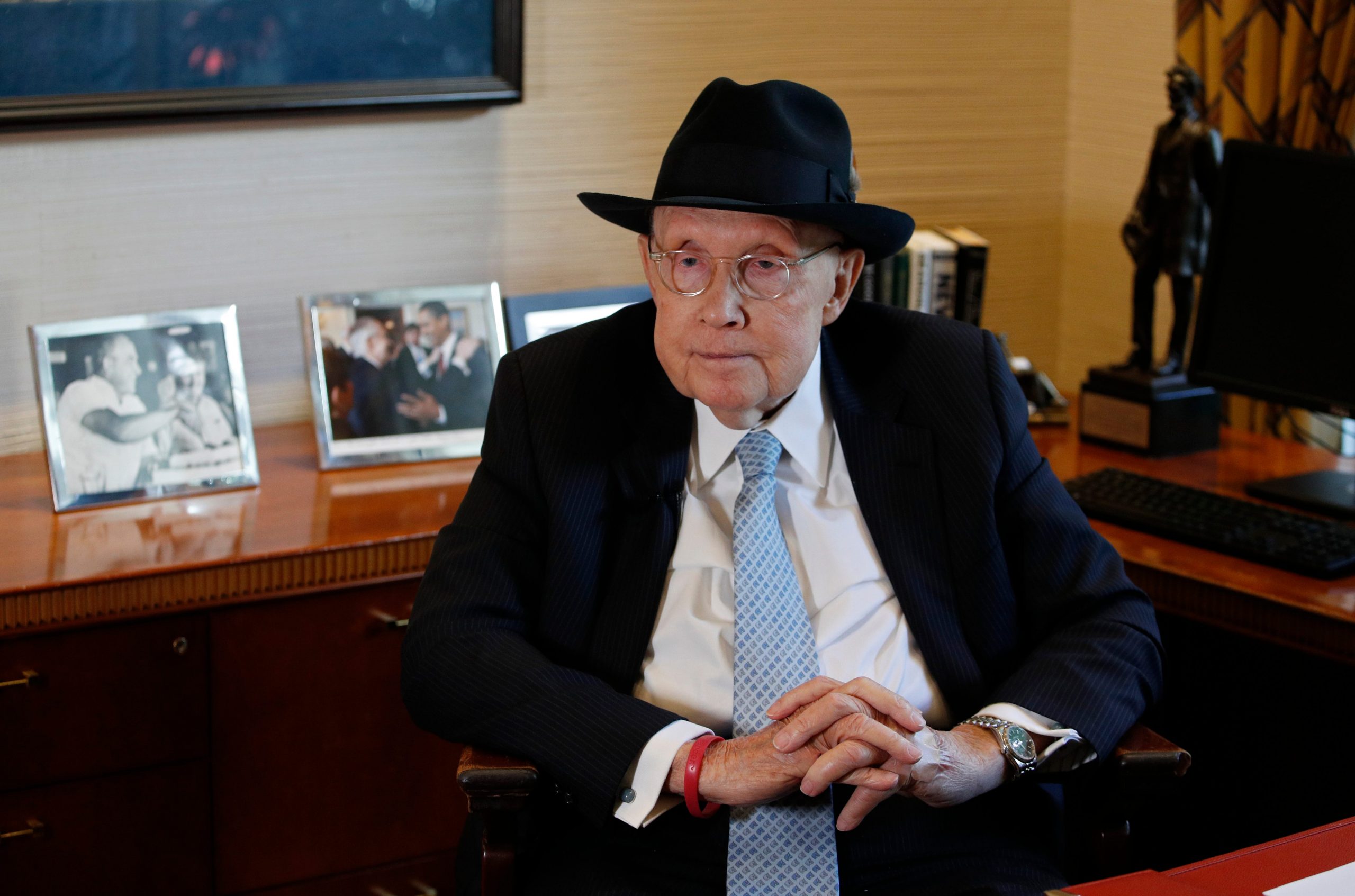
AP Photo/John Locher
- Former Sen. Harry Reid of Nevada said that if Joe Biden captures the White House and Democrats win control of the Senate, then the former vice president should spend “no more than three weeks” testing the waters for bipartisanship before eliminating the filibuster, according to the Associated Press.
- Reid, a 30-year veteran of the Senate and for Majority Leader, said that Democrats will have big pieces of legislation that will encounter hurdles in reaching the 60 votes necessary to push through legislation.
- “We should give the Republicans a little bit of time, to see if they’re going to work with him,” Reid said. “But the time’s going to come when he’s going to have to move in and get rid of the filibuster.”
- Visit Business Insider’s homepage for more stories.
Former Senate Majority Leader Harry Reid said that if Democratic presidential nominee Joe Biden captures the White House and Democrats win control of the Senate, then the former vice president should spend “no more than three weeks” testing the waters for bipartisanship before eliminating the filibuster, according to the Associated Press.
Reid, who retired from the Senate in 2017, said that Democrats will have significant pieces of legislation that will encounter hurdles in reaching the 60 votes necessary to advance legislation.
The 80-year-old former Democratic senator conceded that Biden wanted to change the tone of Washington, but insisted that any comity would still lead to resistance by GOP lawmakers.
“Biden — who wants always to get along with people — I understand that,” Reid said to the Associated Press. “We should give the Republicans a little bit of time, to see if they’re going to work with him. But the time’s going to come when he’s going to have to move in and get rid of the filibuster.”
While Reid has called for the filibuster to be eliminated in the past, this is his first clear timeline for when the action should occur.
He was emphatic that in order to get climate change legislation passed, then the rules would most likely have to be changed.
"We want to get something done," Reid said to the Associated Press. "There's so much more to do and we can't do it if it takes 60 votes to get it done."
In 2013, after Senate Republicans repeatedly blocked then-President Barack Obama's federal judicial nominees, Reid axed the filibuster for most presidential nominees. After President Trump took office in 2017, Senate Republicans, led by Mitch McConnell of Kentucky, eliminated the filibuster for Supreme Court nominees.
At the funeral of US Rep. John Lewis of Georgia earlier this past July, Obama called for the end of the filibuster, criticizing it a "Jim Crow relic" and pushing for a restoration of a critical tenet of the Voting Rights Act.
In his interview with the Associated Press, Reid said that he was thankful for Obama's words.
"Once he did that, of course I let him know I appreciated it," Reid said.
Reid served in the Senate from 1987 to 2017, controlling the chamber's agenda as Majority Leader from 2007 until 2015. He served as Minority Leader from 2005 to 2007 and from 2015 to 2017.
While opponents of the filibuster criticize its overuse in blocking meaningful legislation, supporters are weary of doing anything that would remove power from members of the legislative minority and lead to the Senate resembling the US House of Representatives, where majority rule is the guiding force of the chamber.
Republicans currently have a 53-47 edge in the Senate, but Democrats are expected to make gains and possibly secure a majority for the first time since 2015. Either way, the upper chamber is likely to have a slim majority for whichever party is in control.
